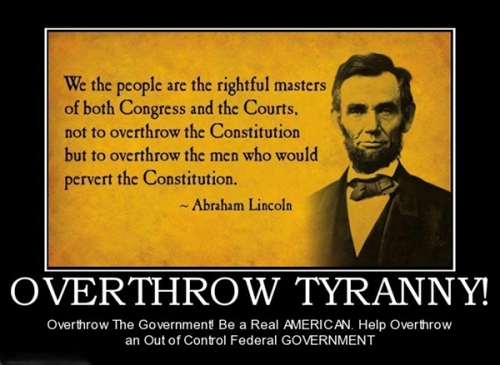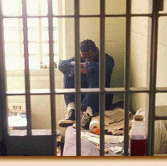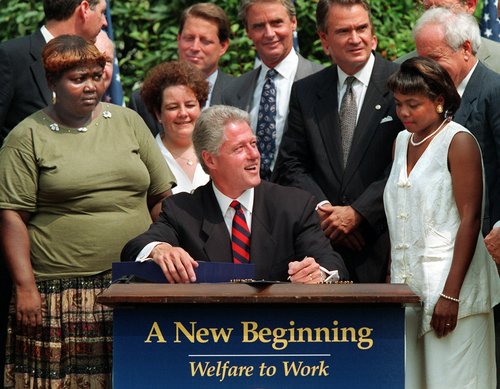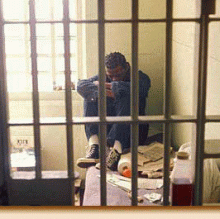Unconscionable Debt Collection Practices of Child Support Enforcement
by Giovanni LoPresti
 As an American Citizen, you want to believe that any person can rely upon judicial fairness in a child support proceeding. The outrageous child support law on the books today is designed to treat all child support debtors like a piece of garbage. The wisdom of common sense, respect, judicial fairness, doesn’t exist under the present law. The mastermind of this unconscionable child support enforcement law was created by former Senator Bill Bradley of New Jersey.
As an American Citizen, you want to believe that any person can rely upon judicial fairness in a child support proceeding. The outrageous child support law on the books today is designed to treat all child support debtors like a piece of garbage. The wisdom of common sense, respect, judicial fairness, doesn’t exist under the present law. The mastermind of this unconscionable child support enforcement law was created by former Senator Bill Bradley of New Jersey.
His Senate Bill modified U.S. Code Title IV-D (42 U.S.C. § 666(a)(9)(c)) which requires state courts to prohibit retroactive reduction of child support obligations. The law abolished the statute of limitations, created a civil judgment by operation of law on all child support debtors, allows adverse credit reporting, allows a cost of living adjustment every two years, allows for review of child support orders every 3 years, without a showing of substantial change in circumstance, allows for a suspension of drivers licenses, passports, professional licenses, income withholding, tax intercepts, unemployment & workman compensation intercepts, requires citizen to provide their social security numbers, requires employers to utilize new hire directory to see if a child support debt is owed, provides locator services, requires health care coverage to be provided by either or both parents, and requires a debtor citizen to show proof of substantial change in circumstances necessary in request for review outside 3-year cycle.
 I would like to focus on the requirement of proof of substantial change in circumstances necessary in requesting a review of child support outside 3-year cycle. The law offers no guidance whatsoever on what constitutes a substantial chance in circumstances. Similarly, the Office of Child Support Enforcement offers no guidance either. With no guidance whatsoever, the law requires payments to be maintained without regard of a citizen’s ability to pay.
I would like to focus on the requirement of proof of substantial change in circumstances necessary in requesting a review of child support outside 3-year cycle. The law offers no guidance whatsoever on what constitutes a substantial chance in circumstances. Similarly, the Office of Child Support Enforcement offers no guidance either. With no guidance whatsoever, the law requires payments to be maintained without regard of a citizen’s ability to pay.
In my view, common sense and judicial fairness would dictate that an injury, illness, loss of employment at no fault of a citizen, whether temporary or not, would constitute a substantial change in financial circumstances? Nonetheless, family court judges throughout the United States have consistently rejected a child support debtor’s request for child support reduction under these circumstances. I asked myself over and over again, why are family court judges are so mean and lack understanding and compassion? The answer to this question is going to shock you.
Under the present law, there is a presumption that child support award is correct and a citizen debtor has the ability to pay or find similar work at the same rate of pay, even if you’re not making the same amount of money. Put simply, Congress has provided family court judges physic abilities to determine a citizen earning capabilities. I find this horrifying, but family court judges find no shame in it. I have heard endless horror stories of citizens whose financial circumstances changed, and denied judicial fairness in family court. Unfortunately, this is what will likely happen if your financial circumstances change:
1. Unemployment or workmen compensation garnished at the full amount.
2. Your ability to support yourself doesn’t matter.
3. Fall behind at no fault of your own, driver’s license, professional license, passport
revoked.
4. Your credit will be destroyed.
5. You can expect armed law enforcement showing up and putting you in county jail
for failure to pay child support.
6. Tax refund intercepted.
WHY A CHILD SUPPORT DEBTORS ARE DENIED JUDICIAL FAIRNESS
WHEN FINANCIAL CIRCUMSTANCES CHANGE
 My researched has revealed that most Americans are unaware that our federal government reimburses States 66% of collection cost expended for child support enforcement, see Title IV under the Social Security Act. This doesn’t bother me, but the additional incentive dollars the States receive to treat citizens like garbage does. Under Title IV:
My researched has revealed that most Americans are unaware that our federal government reimburses States 66% of collection cost expended for child support enforcement, see Title IV under the Social Security Act. This doesn’t bother me, but the additional incentive dollars the States receive to treat citizens like garbage does. Under Title IV:
States receive additional incentive dollars for:
a. paternity establishment
b. order establishment
c. collection on current support cases
d. cases paying towards arrears
e. cost effectiveness
f. performance
 So regardless of a child support debtors changed financial circumstances, a family court judge will routinely deny any request for a reduction or, even a temporary reduction. The unfortunate truth, family court judges armed with physic abilities to determine a citizen’s earning abilities, don’t care. They are the front line in defending the State’s performance incentives. A family court judge will bully a citizen by denying any type of relief sought, suspend your driver’s license, professional license, passport, may incarcerate you for failure to pay child support without a finding of ability to pay, intercept your tax return, garnish your unemployment or workman’s compensation, destroy your credit, and your home State will receive additional incentive dollars from our federal government for doing this to you. This is not only insane, cruel, unconscionable, but definitely creates an appearance of impropriety.
So regardless of a child support debtors changed financial circumstances, a family court judge will routinely deny any request for a reduction or, even a temporary reduction. The unfortunate truth, family court judges armed with physic abilities to determine a citizen’s earning abilities, don’t care. They are the front line in defending the State’s performance incentives. A family court judge will bully a citizen by denying any type of relief sought, suspend your driver’s license, professional license, passport, may incarcerate you for failure to pay child support without a finding of ability to pay, intercept your tax return, garnish your unemployment or workman’s compensation, destroy your credit, and your home State will receive additional incentive dollars from our federal government for doing this to you. This is not only insane, cruel, unconscionable, but definitely creates an appearance of impropriety.
States routinely incarcerate child support debtors, without any determination that they have the ability to pay. Our States actually get paid additional incentive dollars from our federal government for incarnating a child support debtor. The States routinely tell citizens that they are court ordered to pay child support and find them in civil contempt. However, the court order is also a civil judgment by operation of law. Did you ever hear of any situation whereby any judge would allow any person to have a slice a cake and eat it too? For example, if you obtained a civil judgment against me, you can’t suspend my passport, driver’s license, professional license, intercept my tax return, garnish my unemployment or disability check, hold me in contempt, and jail me for failure to pay a debt. Special thanks to our federal government, state government are permitted to have a slice of cake and eat it too.
 The last time I checked, the 14th Amendment prohibits States from denying any person within its territory the equal protection of the laws. The federal government must do the same, but this is also required by the 5th Amendment Due Process Clause. All citizens should be entitled to judicial fairness in any court proceeding. I urge all citizens to write their elected officials and asked them to repeal this unconscionable law. Alternatively, send your elected official a strong message and vote them out of office. A debtor citizen cannot rely upon judicial fairness in a family court proceeding, if a State has a financial interest in maintaining additional incentives dollars.
The last time I checked, the 14th Amendment prohibits States from denying any person within its territory the equal protection of the laws. The federal government must do the same, but this is also required by the 5th Amendment Due Process Clause. All citizens should be entitled to judicial fairness in any court proceeding. I urge all citizens to write their elected officials and asked them to repeal this unconscionable law. Alternatively, send your elected official a strong message and vote them out of office. A debtor citizen cannot rely upon judicial fairness in a family court proceeding, if a State has a financial interest in maintaining additional incentives dollars.

 Nearly four decades of mass incarceration and over-criminalization have made the United States the world leader in incarceration and arrests. The number of Americans in federal and state prisons and jails has quintupled over the past four decades. As a result, nearly 2.3 million Americans are behind bars today. The U.S. incarceration rate is at more than six times the average across developed nations. “Communities of color” and “men of color” are hit hardest, with black men six times more likely and Latino men two-and-a-half times more likely to be incarcerated than white men.
Nearly four decades of mass incarceration and over-criminalization have made the United States the world leader in incarceration and arrests. The number of Americans in federal and state prisons and jails has quintupled over the past four decades. As a result, nearly 2.3 million Americans are behind bars today. The U.S. incarceration rate is at more than six times the average across developed nations. “Communities of color” and “men of color” are hit hardest, with black men six times more likely and Latino men two-and-a-half times more likely to be incarcerated than white men. While the effects of parental incarceration on children and families are well-documented, less appreciated are the family consequences that stem from the barriers associated with having a criminal record. A child’s life chances are strongly tied to his or her circumstances during childhood. Thus, these barriers may not only affect family stability and economic security in the short term but also may damage a child’s long-term well-being and outcomes.
While the effects of parental incarceration on children and families are well-documented, less appreciated are the family consequences that stem from the barriers associated with having a criminal record. A child’s life chances are strongly tied to his or her circumstances during childhood. Thus, these barriers may not only affect family stability and economic security in the short term but also may damage a child’s long-term well-being and outcomes. Many states have opted for oppression when it comes down to child support debt. A few wiser minds are prevailing in a few places. When the state of Maryland wanted to reach dads who were behind on their child support payments, it started in the boarded-up blocks of West Baltimore, in neighborhoods marked by drugs, violence and unemployment.
Many states have opted for oppression when it comes down to child support debt. A few wiser minds are prevailing in a few places. When the state of Maryland wanted to reach dads who were behind on their child support payments, it started in the boarded-up blocks of West Baltimore, in neighborhoods marked by drugs, violence and unemployment. “So even if we use taxpayer dollars to chase ’em down, and we catch ’em, right, and we go into their pockets, there’s nothing in there,” says Joe Jones of Baltimore’s Center for Urban Families.
“So even if we use taxpayer dollars to chase ’em down, and we catch ’em, right, and we go into their pockets, there’s nothing in there,” says Joe Jones of Baltimore’s Center for Urban Families. Like a growing number of state government officials, Maryland’s DiPrimio wanted to make parents an offer. But he needed their trust, and that was a problem.
Like a growing number of state government officials, Maryland’s DiPrimio wanted to make parents an offer. But he needed their trust, and that was a problem. To break through years of distrust, Maryland sent letters to parents with the logo of the Center for Urban Families, a nonprofit in West Baltimore that provides job training and other help to poor families.
To break through years of distrust, Maryland sent letters to parents with the logo of the Center for Urban Families, a nonprofit in West Baltimore that provides job training and other help to poor families. Response has been slow. In two years, slightly more than 100 parents have signed on. Many of them attend fatherhood meetings like one held on a recent Wednesday night. Two dozen men — 20-something to middle age, in sweats and in suits — sit in a large square.
Response has been slow. In two years, slightly more than 100 parents have signed on. Many of them attend fatherhood meetings like one held on a recent Wednesday night. Two dozen men — 20-something to middle age, in sweats and in suits — sit in a large square. The Obama administration wants to “right size” child support orders from the start, and has proposed regulations to make sure they are set according to what parents actually earn. Officials say some jurisdictions base orders on a full-time minimum wage, even if a parent earns far less. They say this can backfire, leaving so little money after a parent’s wages are garnished that he or she quits and works underground instead.
The Obama administration wants to “right size” child support orders from the start, and has proposed regulations to make sure they are set according to what parents actually earn. Officials say some jurisdictions base orders on a full-time minimum wage, even if a parent earns far less. They say this can backfire, leaving so little money after a parent’s wages are garnished that he or she quits and works underground instead.

 The
The  Of the 2.2 million people incarcerated in the United States, about half are parents, and at least 1 in 5 has a child-support obligation. For most, the debt will keep piling up throughout their imprisonment: By law or by practice, child-support agencies in much of the country consider incarceration a form of “voluntary impoverishment.” Parents like Harris, the logic goes, have only themselves to blame for not earning a living. But that may be about to change.
Of the 2.2 million people incarcerated in the United States, about half are parents, and at least 1 in 5 has a child-support obligation. For most, the debt will keep piling up throughout their imprisonment: By law or by practice, child-support agencies in much of the country consider incarceration a form of “voluntary impoverishment.” Parents like Harris, the logic goes, have only themselves to blame for not earning a living. But that may be about to change.